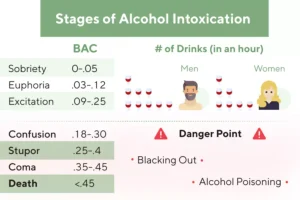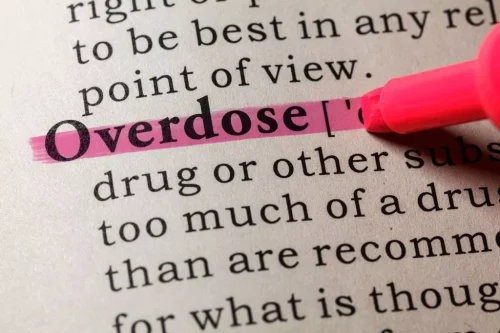
A Japanese cohort study also found that CKD is an independent risk factor for higher rates of stroke in men and women. Furthermore, moderate alcohol consumption appears to be harmful in patients with CKD because it increases the incidence of cerebral hemorrhages [14,89]. The Centers for Disease Control estimates that most American adults (two out of three) drink alcohol. Too often, some of these regular drinkers have more than five drinks at one time. In fact, about a quarter of drinkers reported they had done this on at least one day in the past year. “Binge” drinking has harmful effects on the kidney that can even lead to acute kidney failure.
Study participants and data collection
Among the most important substances contributing to these conditions are water, sodium, potassium, calcium, and phosphate. Loss or retention of any one of these substances can influence the body’s handling of the others. In addition, hydrogen ion concentration (i.e., acid-base balance) influences cell structure and permeability as well as the rate of metabolic reactions. The how does alcohol affect the kidneys amounts of these substances must be held within very narrow limits, regardless of the large variations possible in their intake or loss. The kidneys are the organs primarily responsible for regulating the amounts and concentrations of these substances in the extracellular fluid. Characteristics of the clinical studies on alcohol consumption and chronic kidney disease.
Alcoholic cirrhosis

While treating ALD it is important not only to abstain from alcohol but also become conscious of other factors that could affect the liver. However, eligibility may depend on being abstinent from alcohol for a specific length of time. Someone with decompensated cirrhosis may develop ascites (or fluid in the abdomen), gastrointestinal bleeding, and hepatic encephalopathy, in which the brain is affected. Alcoholic cirrhosis is a progression of ALD in which scarring in the liver makes it difficult for that organ to function properly.
- This type of sudden-onset kidney damage often resolves with time, but it can be lasting in some cases.
- Your doctor can give you advice about whether it is safe to consume alcohol while undergoing cancer treatment.
- You probably know someone who developed health problems from drinking too much alcohol.
- The kidney tubules play an important role in keeping the body’s water and electrolyte levels in equilibrium.
- If you do choose to drink alcohol, limit your intake to no more than one to two drinks per day.
- Depending on the extent of liver damage you have, you may need to completely abstain from alcohol in order to give your liver the best chance for recovery.
Influence of alcoholism on the prognosis of patients with CKD
Epidemiological studies suggest that per capita consumption of alcohol from various alcohol beverages e.g., beer, wine, or spirits, differs markedly between different areas of the world. Studies further suggest that different alcoholic beverages may impact the development of alcohol-related liver diseases (ALD) differentially. Specifically, results of several more recent epidemiological studies suggest that consumption of wine and herein especially of red wine may be less harmful in relation to the development of liver diseases than the intake of hard spirits. Results of studies evaluating the effects of beer on the development of ALD in humans are rather contradictory.
Health Categories to Explore
In addition, excess fluid accumulates in spaces between cells, clinically manifested as swelling (i.e., edema) of the lower back and legs. As long as cirrhotic patients remain unable to excrete sodium, they will continue to retain the sodium they consume in their diet. Consequently, they will develop increasing ascites and edema and experience weight gain. In some cases, vast amounts of abdominal fluid may collect, occasionally more than 7 gallons (Epstein 1996). Alcohol can induce abnormally high phosphate levels (i.e., hyperphosphatemia) as well as abnormally low levels.

Search Results

Moreover, alcohol-induced renal tubular dysfunction is also reflected in vitamin reabsorption disorders. Subramanian et al. proved that chronic alcohol consumption can significantly inhibit carrier-mediated thiamin and biotin transport across the renal brush border membrane and basolateral membrane [54,55]. It’s unclear why this might occur, but experts warn that the risks of drinking alcohol don’t outweigh this potential benefit. Over time, alcohol can damage the kidneys, according to the National Kidney Foundation. So, if you drink alcohol, especially often, the kidneys must work harder to return your blood to its usual state. The function of the kidneys in the body is to filter harmful substances out of the body.
This occurs when the toxins from alcohol build up in your blood quickly and your kidneys are not able to maintain the right fluid balance. There are many health risks of consuming excessive alcohol use over time. This is why it’s important to see your healthcare provider regularly and be open and honest about how much alcohol you drink so you any health-related damage can be found early.
In glucose breakdown, phosphate becomes incorporated into various metabolic compounds, ultimately lowering blood levels of phosphate. As the rate of glucose breakdown increases, profound hypophosphatemia potentially can result. The kidney tubules play an important role in keeping the body’s water and electrolyte levels in equilibrium.
- In fact, alcoholic beverage sales have increased by 55% in 2020 compared to last year.
- For example, almost 30 years ago, Koppel and colleagues (1969) demonstrated that kidneys transplanted from patients with hepatorenal syndrome are capable of resuming normal function in recipients without liver disease.
- And prolonged alcohol use can lead to mental health conditions like anxiety and depression.
- Points and bars represent beta coefficients and 95% confidence intervals, respectively.
- Individuals who are concerned about their drinking habits can also consult a doctor for guidance on professional help and support.
Association Between Alcohol Consumption and Chronic Kidney Disease
Some observers have noted that patients with cirrhosis frequently develop hepatorenal syndrome following hospital admission, possibly indicating that a hospital-related event can trigger the syndrome. Regardless of the precipitating factor, patients who develop kidney failure in the course of alcoholic cirrhosis have a grave prognosis. The events leading to abnormal sodium handling in patients with cirrhosis are complex and controversial, however. Investigators have advanced several theories suggesting the involvement of a constellation of hormonal, neural, and hemodynamic mechanisms (Epstein 1996; Laffi et al. 1996).
